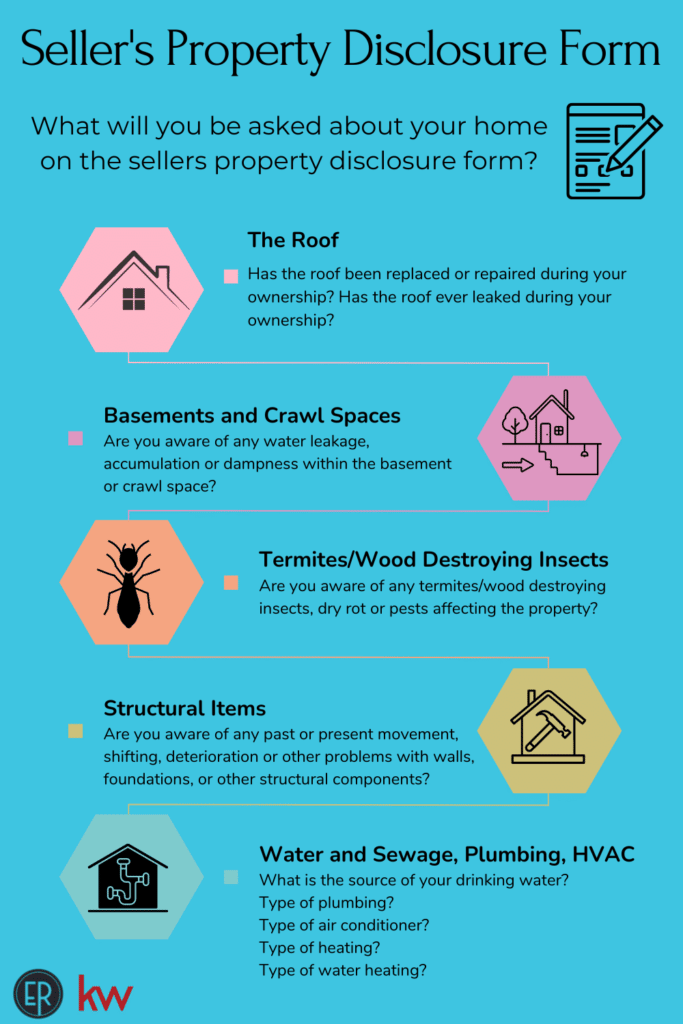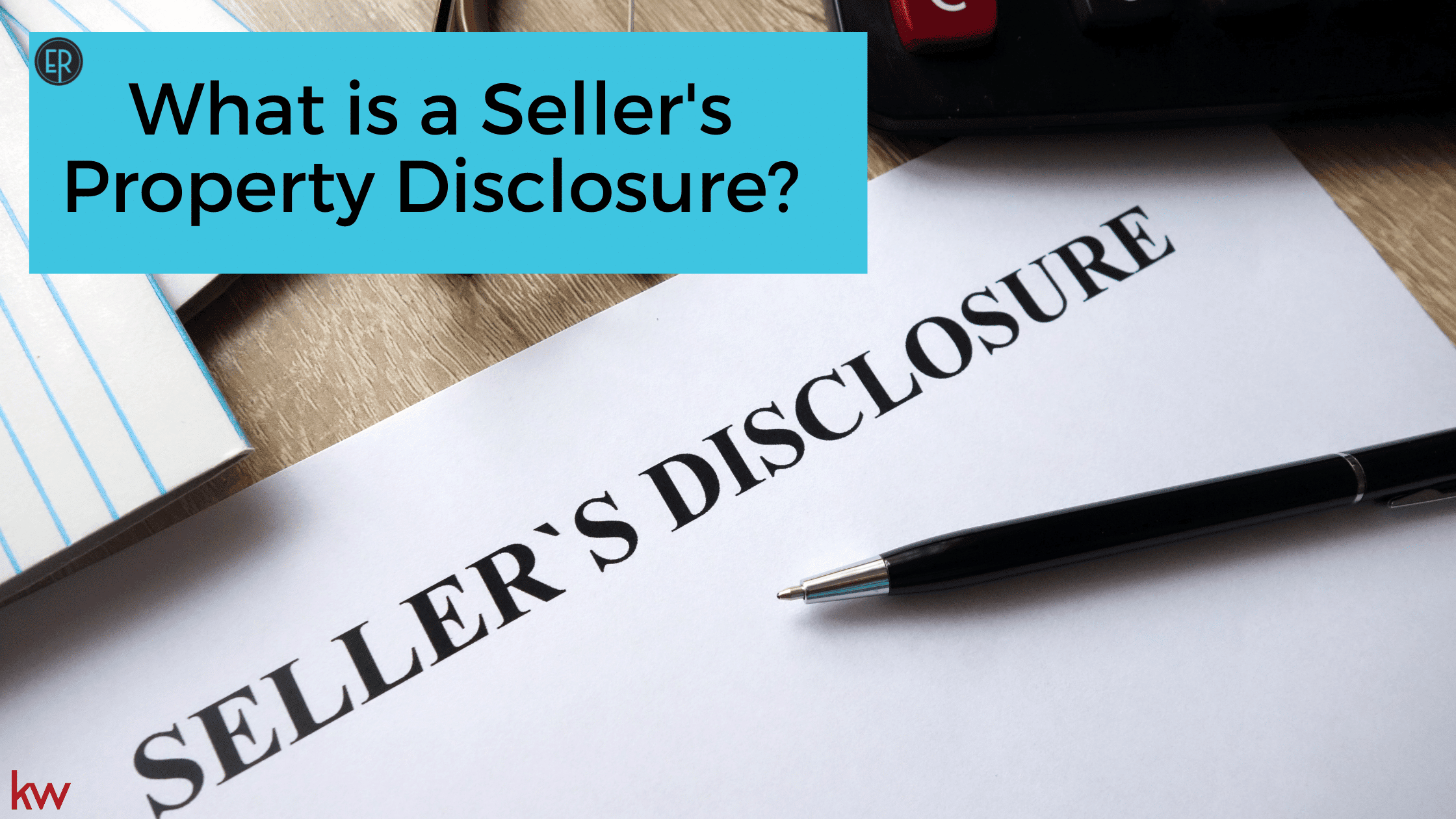“What is a Seller’s Property Disclosure?”
Buying a home or buying real estate, in general, is one of the largest financial investments some people will make in their lifetime.
When someone is making such a large investment, they want to make sure it’s worthwhile and won’t cost them potentially thousands of dollars more due to damages or undisclosed defects.
To help protect both buyers and sellers in real estate transactions, sellers in Pennsylvania are required to complete a seller property disclosure.
What Is Pennsylvania’s Seller’s Property Disclosure Law?
According to Pennsylvania’s Real Estate Seller Disclosure Law (68 Pa.C.S. §§ 7301-7314), sellers must disclose to buyers several key areas about their property to the best of their knowledge while living in the home.
Here’s a breakdown of the areas of your home you will be required to comment on the seller’s property disclosure form.
- Seller’s expertise in contracting, engineering, architecture or other areas related to the construction and conditions of the property and its improvements.
- When the property was last occupied by the seller
- Roof
- Basements and crawl spaces
- Termites/wood destroying insects, dry rot and pests
- Structural problems
- Additions, remodeling and structural changes to the property
- Water and sewage systems or service
- Plumbing system
- Heating and air conditioning
- Electrical system
- Other equipment and appliances included in the sale
- Soils, drainage, boundaries and sinkholes
- Presence of hazardous substances
- Condominiums and other homeowners associations
- Legal issues affecting title or that would interfere with use and enjoyment of the property
- Condition, if known, and location of all stormwater facilities, including a statement disclosing whether ongoing maintenance of the storm water facilities is the responsibility of the property owner or the responsibility of another person or entity
What Does a Seller Need to Disclose to Potential Buyers?
Sellers will need to disclose everything they have knowledge of about the property as it relates to the questions outlined in the seller’s property disclosure form.
The seller’s property disclosure document is broken down into several sections related to different areas of your home.
Read below for a few examples of questions for things you’ll need to disclose to potential buyers about your home as a seller.
Examples of Seller’s Disclosure Questions for Different Areas of the House
The Roof:
- Date roof was installed
- Has the roof been replaced or repaired during your ownership?
- If “yes,” were the shingles removed?
- Has the roof ever leaked during your ownership?
Basements and Crawl Spaces:
- Does the property have a sump pump?
- Are you aware of any water leakage, accumulation or dampness within the basement or crawl space?
- Do you know any repairs or other attempts to control any water or dampness problem in the basement or crawl space?
Termites/Wood Destroying Insects, Dry Rot, Pests:
- Are you aware of any termites/wood destroying insects, dry rot or pests affecting the property?
- Is your property currently under contract by a licensed pest control company?
- Are you aware of any termite/pest control resorts or treatments for the property in the last five years?
Structural Items:
- Are you aware of any past or present water leakage in the house or other structures?
- Are you aware of any past or present movement, shifting, deterioration or other problems with walls, foundations, or other structural components?
- Are you aware of any past or present problems with driveways, walkways, patios or retaining walls on the property?
Water & Sewage:
- What’s the source of your drinking water? (public, community, well on property, other)
- Is the pumping system in working order?
- Do you have a softener, filter or other purification system?
- What is the type of sewage system? (public, private, septic tank, cesspool, other)
Plumbing System:
- Type of plumbing? (copper, galvanized, lead, PVC, unknown, other)
- Are you aware of any problems with any of your plumbing fixtures (including, but not limited to: kitchen, laundry, or bathroom fixtures, wet bars, hot water heater, etc)?
Heating and Air Conditioning:
- Type of air conditioning? (central electric, central gas, wall, none)
- Type of heating? (electric, fuel oil, natural gas, other)
- Type of water heating? (electric, gas, solar, other)
While the list above is a great starting point for the questions you’ll be asked about your house on the Pennsylvania’s seller’s disclosure form, it’s by no means an exhaustive list of the information you’ll need to provide.
You can view the complete list of questions on the Pennsylvania seller’s property disclosure form online.
If you have any questions about how to complete the form, you can contact our licensed real estate agents on The Erica Rawls Team.

What Happens if a Seller Lies on a Property Disclosure Statement in Pennsylvania?
If you knowingly submit false information about the property or fail to disclose pertinent information, you can be liable for lawsuit from the buyers.
However, sellers are only required to include anything they actually know about the property.
In some cases, when selling a house, sellers will use the disclosure statement they received when they originally bought the property to fill in any gaps.
Remember, when you purchase a property as a buyer you will receive a copy of the property disclosure, which means any information that was mentioned in the statement was passed onto you, even if you were not the property owner who originally made the upgrades or resolved the problems.
If you knowingly submit false information about the property or fail to disclose pertinent information, you can be liable for lawsuit from the buyers.
To help prevent unknowingly completing a false sellers disclosure form, as professionals listing realtors in Pennsylvania, we highly recommend sellers obtain a pre-listing inspection prior to placing your home on the market.
What if the Seller Doesn’t Know Much About The Items in The Disclosure?
There may be items on the seller’s property disclosure that you may be unaware of how to answer because it’s truly unknown to you, even as the seller.
In this case, the law states: “If at the time the disclosures are required to be made, an item of information required to be disclosed is unknown or not available to the seller, the seller may make a disclosure based on the best information available to the seller.
Contact The Erica Rawls Team at Keller Williams of Central PA today. Learn more about our Harrisburg realtors.
If you’re interested in speaking with a licensed realtor, complete our online form or give us a call at 717-761-4300.


